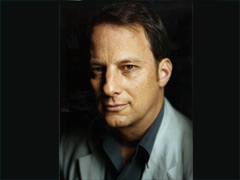
Photo: Teresa Queirós
As I navigated through the world of academia I felt myself grow slightly downward. At the end of each semester, I was compelled to readjust my mind, analyze what I learned and unlearn the things that kept me from being free and pliable because something in the liberal path to knowledge dismantled me.
I came to some conclusions, but it was not until I studied for my GRE that I stumbled over an observation. A vital part of GRE preparation consists of studying vocabulary. Which is especially important for the Verbal Reasoning section and study guides provide a mean list of a couple hundred words that are likely to be seen on the test.
I like words and wanted to learn them all. Not just for the test, but for life so I did what I was taught— I made notecards. The pile was toppling tall and to underwhelm the task, I divided the words into manageable sets. Three separate categories formed: positive words, negative words, and neutral words. I meant to divide them evenly, but comparing the stacks, I was bewildered. The neutral stack was dingy, the positive stack was a bit less dingy, the negative stack was like the leaning tower of Pisa hovering over them both— the negative words completely dwarfed all the rest.
By negative words I mean the words that deconstruct rather than construct, for example, the Kaplan GRE study guide offered twenty-seven words meaning “to criticize,” while it provided just nine words “to praise.” To further unbalance the situation, the English language allows for most positive words to be negated, but not vice-versa. Happy can be turned to unhappy, generous can be made ungenerous, and ingenuous can be made disingenuous, while most negative words rarely yield to that kind of superfluity. Unsad, ungreedy or disodious are improper.
I realized that the negative vibe I felt was not pure emotion, but the result of a negative system of learning. Words are the foundation for obtaining knowledge and the foundation assigned to me was focused on deconstruction, giving me more aides to tear apart and criticize rather than to build up, create, and express my thoughts, ideas and emotions in a constructive way. That is perhaps why those who berate, decry and defame sound more sophisticated than those who attempt to point out the good, the true and the beautiful.

![Photo: Julie Kifuk [Thanks Julie - you're work is exquisite.]](http://therussian.org/wp-content/uploads/2014/07/jules.jpg)


